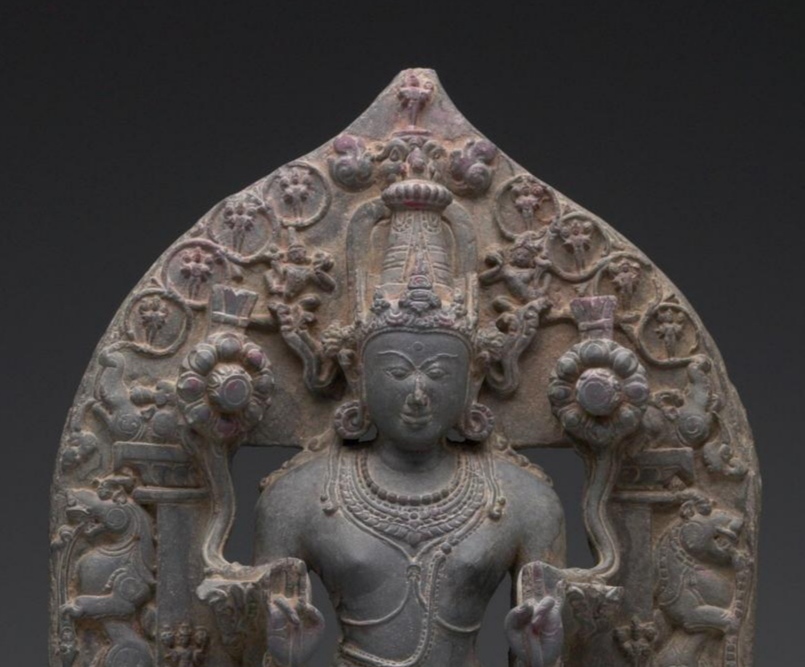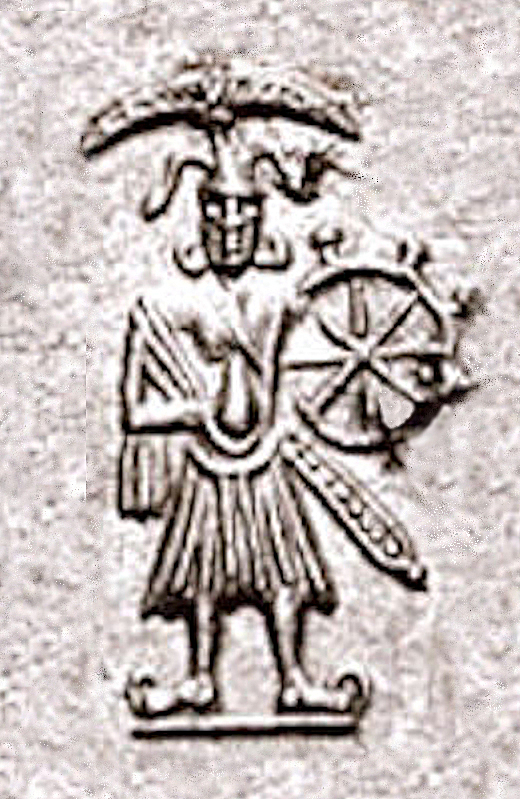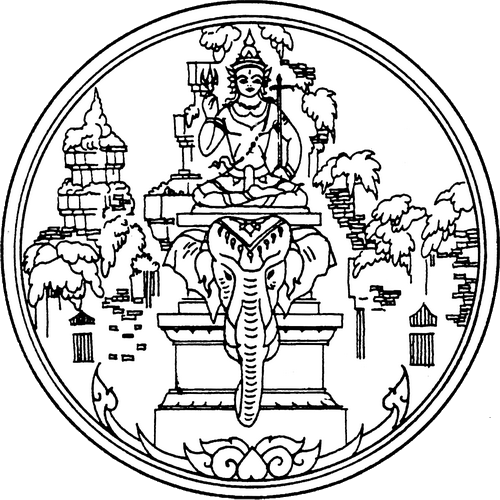|
Ansa (Hinduism)
Amsha () is a solar deity in Hinduism. He is a member of the adityas, a group of celestial deities who are the children of Kashyapa and Aditi. He is first mentioned in the Rigveda. Other uses In Vaishnavism, amsha refers to a being who is regarded to be a partial incarnation or a portion of the deity Vishnu. The term is also used to indicate the portion of a Vedic upright=1.2, The Vedas are ancient Sanskrit texts of Hinduism. Above: A page from the '' Atharvaveda''. The Vedas ( or ; ), sometimes collectively called the Veda, are a large body of religious texts originating in ancient India. Composed ... sacrifice that is offered to the gods. Amsha is also the name of a sage. References Hindu gods Solar gods Adityas {{Hindu-theo-stub ... [...More Info...] [...Related Items...] OR: [Wikipedia] [Google] [Baidu] |
Adityas
In Hinduism, Adityas ( ) refers to a group of major solar deities, who are the offspring of the goddess Aditi. The name ''Aditya'', in the singular, is taken to refer to the sun god Surya. Generally, Adityas are twelve in number and consist of Vivasvan (Surya), Aryaman, Tvashtr, Savitr, Bhaga, Dhatr, Mitra, Varuna, Amsha, Pushan, Indra and Vishnu (in the form of Vamana). They appear in the ''Rig Veda'', where they are 6–8 in number, all male. The number increases to 12 in the ''Brahmanas''. The Mahabharata and the ''Puranas'' mention the sage Kashyapa as their father. In each month of the year a different Aditya is said to shine. Sun worship Characterisation The Aditya have been described in the Rig Veda as bright and pure as streams of water, free from all guile and falsehood, blameless, perfect. This class of deities has been seen as upholding the movables and immovable Dharma. Adityas are beneficent gods who act as protectors of all beings, who are pr ... [...More Info...] [...Related Items...] OR: [Wikipedia] [Google] [Baidu] |
Kashyapa
Kashyapa (, ) is a revered Vedic sage of Hinduism., Quote: "Kasyapa (Rudra),(Vedic Seer)..." He is one of the Saptarishis, the seven ancient sages of the ''Rigveda''. Kashyapa is the most ancient and venerated rishi, along with the other Saptarishis, listed in the colophon verse in the ''Brihadaranyaka Upanishad''. Kashyapa is an ancient name, referring to many different personalities in the ancient Hindu and Buddhist texts. Name Kashyapa means "turtle" in Sanskrit. According to Michael Witzel, it is related to Avestan ''kasiiapa'', Sogdian ''kyšph'', Kurdish ''kûsî'', New Persian ''kašaf'', ''kaš(a)p'' which mean "tortoise", after which Kashaf Rūd (a river in Turkmenistan and Khorasan) is named. Other relations include to Tokarian B ''kaccāp'' ("brainpan"), Tokarian A ''kāccap'' ("turtle", "tortoise"). Frits Staal agrees that Kaśyapa means 'tortoise', but believes that it is a non-Indo-European word. History Kashyapa is credited with composing a few hymns in ... [...More Info...] [...Related Items...] OR: [Wikipedia] [Google] [Baidu] |
Aditi
Aditi (Sanskrit: अदिति, lit. 'boundless' or 'limitless' or 'innocence') is an important Vedic goddess in Hinduism. She is the personification of the sprawling infinite and vast cosmos. She is the goddess of motherhood, consciousness, unconsciousness, the past, the future, and fertility. She is the mother of the celestial deities known as the adityas, and is referred to as the mother of many deities. As celestial mother of numerous beings, the synthesis of all things, she is associated with space (''akasha'') and with mystic speech (''Vāc''). She may be seen as a feminine form of Brahma, and associated with the primal substance (''mulaprakriti'') in the Vedanta. She is mentioned more than 250 times in the ''Rigveda,'' the verses replete with her praise. Family Aditi is the daughter of Daksha and Asikni (Panchajani). The ''Puranas'', such as the ''Shiva Purana'' and the ''Bhagavata Purana'', suggest that Daksha married all of his daughters off to different people ... [...More Info...] [...Related Items...] OR: [Wikipedia] [Google] [Baidu] |
Hinduism
Hinduism () is an Hypernymy and hyponymy, umbrella term for a range of Indian religions, Indian List of religions and spiritual traditions#Indian religions, religious and spiritual traditions (Sampradaya, ''sampradaya''s) that are unified by adherence to the concept of ''dharma'', a Ṛta, cosmic order maintained by its followers through rituals and righteous living, as expounded in the Vedas. The word ''Hindu'' is an exonym, and while Hinduism has been called the oldest religion in the world, it has also been described by the modern term ''Sanātana Dharma'' () emphasizing its eternal nature. ''Vaidika Dharma'' () and ''Arya dharma'' are historical endonyms for Hinduism. Hinduism entails diverse systems of thought, marked by a range of shared Glossary of Hinduism terms, concepts that discuss God in Hinduism, theology, Hindu mythology, mythology, among other topics in Hindu texts, textual sources. Hindu texts have been classified into Śruti () and Smṛti (). The major Hin ... [...More Info...] [...Related Items...] OR: [Wikipedia] [Google] [Baidu] |
Ādityas
In Hinduism, Adityas ( ) refers to a group of major solar deities, who are the offspring of the goddess Aditi. The name ''Aditya'', in the singular, is taken to refer to the solar deity, sun god Surya. Generally, Adityas are twelve in number and consist of Vivasvan (Surya), Aryaman, Tvashtr, Savitr, Bhaga, Dhatr, Mitra (Hindu god), Mitra, Varuna, Amsha, Pushan, Indra and Vishnu (in the form of Vamana). They appear in the ''Rig Veda'', where they are 6–8 in number, all male. The number increases to 12 in the ''Brahmanas''. The Mahabharata and the ''Puranas'' mention the sage Kashyapa as their father. In each month of the year a different Aditya is said to shine. Sun worship Characterisation The Aditya have been described in the Rig Veda as bright and pure as streams of water, free from all guile and falsehood, blameless, perfect. This class of deities has been seen as upholding the movables and immovable Dharma. Adityas are beneficent gods who act as protectors of all ... [...More Info...] [...Related Items...] OR: [Wikipedia] [Google] [Baidu] |
Rigveda
The ''Rigveda'' or ''Rig Veda'' (, , from wikt:ऋच्, ऋच्, "praise" and wikt:वेद, वेद, "knowledge") is an ancient Indian Miscellany, collection of Vedic Sanskrit hymns (''sūktas''). It is one of the four sacred canonical Hindu texts (''śruti'') known as the Vedas. Only one Shakha of the many survive today, namely the Shakala Shakha, Śakalya Shakha. Much of the contents contained in the remaining Shakhas are now lost or are not available in the public forum. The ''Rigveda'' is the oldest known Vedic Sanskrit text. Its early layers are among the oldest extant texts in any Indo-European language. Most scholars believe that the sounds and texts of the ''Rigveda'' have been orally transmitted with precision since the 2nd millennium BCE, through Indian mathematics#Styles of memorisation, methods of memorisation of exceptional complexity, rigour and fidelity, though the dates are not confirmed and remain contentious till concrete evidence surfaces. Philolog ... [...More Info...] [...Related Items...] OR: [Wikipedia] [Google] [Baidu] |
Vaishnavism
Vaishnavism () ), also called Vishnuism, is one of the major Hindu denominations, Hindu traditions, that considers Vishnu as the sole Para Brahman, supreme being leading all other Hindu deities, that is, ''Mahavishnu''. It is one of the major Hindu denominations along with Shaivism, Shaktism, and Smartism. Its followers are called Vaishnavites or ''Vaishnava''s (), and it includes sub-sects like Krishnaism and Ramanandi Sampradaya, Ramaism, which consider Krishna and Rama as the supreme beings respectively. According to a 2020 estimate by The World Religion Database (WRD), hosted at Boston University’s Institute on Culture, Religion and World Affairs (CURA), Vaishnavism is the largest Hindu sect, constituting about 399 million Hindus. The ancient emergence of Vaishnavism is unclear, and broadly hypothesized as a History of Hinduism, fusion of various regional non-Vedic religions with worship of Vishnu. It is considered a merger of several popular non-Vedic theistic traditio ... [...More Info...] [...Related Items...] OR: [Wikipedia] [Google] [Baidu] |
Vishnu
Vishnu (; , , ), also known as Narayana and Hari, is one of the Hindu deities, principal deities of Hinduism. He is the supreme being within Vaishnavism, one of the major traditions within contemporary Hinduism, and the god of preservation (sattva). Vishnu is known as ''The Preserver'' within the Trimurti, the triple deity of Para Brahman, supreme divinity that includes Brahma and Shiva.Gavin Flood, An Introduction to Hinduism' () (1996), p. 17. In Vaishnavism, Vishnu is the supreme Lord who creates, protects, and transforms the Hindu cosmology, universe. Tridevi is stated to be the energy and creative power (Shakti) of each, with Lakshmi being the equal complementary partner of Vishnu. He is one of the five equivalent deities in Panchayatana puja of the Smarta tradition of Hinduism. According to Vaishnavism, the supreme being is with qualities (Saguna Brahman, Saguna), and has definite form, but is limitless, transcendent and unchanging absolute Brahman, and the primal Atma ... [...More Info...] [...Related Items...] OR: [Wikipedia] [Google] [Baidu] |
Historical Vedic Religion
The historical Vedic religion, also called Vedism or Brahmanism, and sometimes ancient Hinduism or Vedic Hinduism, constituted the religious ideas and practices prevalent amongst some of the Indo-Aryan peoples of the northwest Indian subcontinent (Punjab and the western Ganges plain) during the Vedic period ( 1500–500 BCE). These ideas and practices are found in the Vedic texts, and some Vedic rituals are still practised today. The Vedic religion is one of the major traditions which Origins of Hinduism, shaped modern Hinduism, though present-day Hinduism is significantly different from the historical Vedic religion. The Vedic religion has roots in the Indo-Iranians, Indo-Iranian culture and religion of the Sintashta culture, Sintashta ( 2200–1750 BCE) and Andronovo culture, Andronovo ( 2000–1150 BCE) cultures of Eurasian Steppe. This Indo-Iranian religion borrowed "distinctive religious beliefs and practices" from the non-Indo-Aryan Bactria–Margiana Archaeological Compl ... [...More Info...] [...Related Items...] OR: [Wikipedia] [Google] [Baidu] |
Hindu Gods
Hindu deities are the gods and goddesses in Hinduism. Deities in Hinduism are as diverse as its traditions, and a Hindu can choose to be polytheistic, pantheistic, monotheistic, monistic, even agnostic, atheistic, or humanist.Julius J. Lipner (2009), Hindus: Their Religious Beliefs and Practices, 2nd edition, Routledge, , p. 8; Quote: "(...) one need not be religious in the minimal sense described to be accepted as a Hindu by Hindus, or describe oneself perfectly validly as Hindu. One may be polytheistic or monotheistic, monistic or pantheistic, even an agnostic, humanist or atheist, and still be considered a Hindu." The terms and epithets for deities within the diverse traditions of Hinduism vary, and include Deva (Hinduism), Deva, Devi, Ishvara, Ishvari, Bhagavan, Bhagavān and Bhagavathi, Bhagavati. The deities of Hinduism have evolved from the Vedic era (2nd millennium BCE) through the medieval era (1st millennium CE), regionally within Nepal, Pakistan, India and in Sout ... [...More Info...] [...Related Items...] OR: [Wikipedia] [Google] [Baidu] |
Solar Gods
Solar may refer to: Astronomy * Of or relating to the Sun ** Solar telescope, a special purpose telescope used to observe the Sun ** A device that utilizes solar energy (e.g. "solar panels") ** Solar calendar, a calendar whose dates indicate the position of the Earth on its revolution around the Sun ** Solar eclipse, an eclipse of a sun in which it is obstructed by the moon ** Solar System, the planetary system made up by the Sun and the objects orbiting it * Solar Maximum Mission, a satellite * SOLAR (ISS), an observatory on International Space Station Music * "Solar" (composition), attributed to Miles Davis * ''Solar'' (Red Garland album), 1962 * ''Solar'' (Taeyang album), 2010 * ''Solar'', a 2011 album by Rubik * "Solar", a song by Northlane from '' Mesmer'', 2017 * "Solar", a song by Sault from ''Air'', 2022 * ”Solar”, a song by Stam1na from '' Taival'', 2018 * SOLAR Records, a record label Geography * Solar (Spanish term), a type of urban site * Solar, Coun ... [...More Info...] [...Related Items...] OR: [Wikipedia] [Google] [Baidu] |





